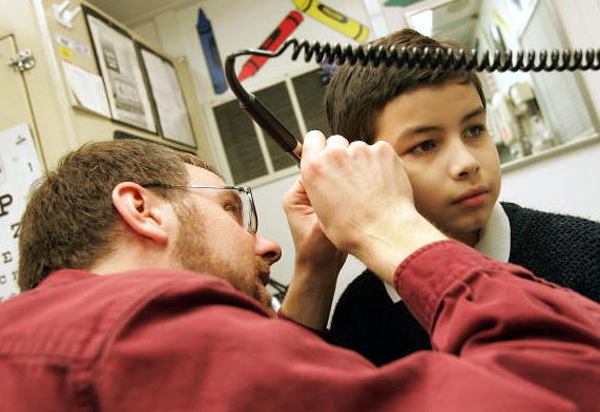- La Feria Community Holds Succesful Business Mixer Event
- Little Nashville to Take Place in Downtown Mercedes
- Lions Basketball Captures District Gold
- La Feria ISD Students Compete in Regional Chess Tournament
- Lions End First Half of 32-4A on a High Note
- La Feria ISD Held Another Successful Parent Conference
- Strong Appearance for Lions at Hidalgo Power Meet
- LFECHS Students Get to Meet Local Actress
- Students Participate in Marine Biology Camp
- Two LFECHS Students Qualify for All-State Band
Medicaid Cuts in Senate Health Plan Could Fall on Texas Kids
- Updated: July 7, 2017

If Medicaid funds are cut, 3 million low-income Texas children could lose their health-care coverage. Photo: Boyle/GettyImages
by Mark Richardson
HOUSTON – More than 3 million low-income Texas children could lose their health care if the U.S. Senate’s repeal-and-replace bill, known as the “Better Care Reconciliation Act,” becomes law, according to a new analysis.
The Center for Public Policy Priorities analysis determined that the plan’s $800 billion in Medicaid cuts could cause kids enrolled in the Texas Medicaid and CHIP programs to lose their eligibility or be priced out of coverage.
Patrick Bresette, executive director of the Children’s Defense Fund in Texas, said Medicaid is a critical lifeline for some of the state’s neediest families.
“We rely on Medicaid as a critical health-insurance program for nearly half of our children,” he said. “Three million children receive their health care through Medicaid. Half of our newborns and prenatal care are covered by Medicaid. So, it’s an enormous impact across the board.”
The Senate on Tuesday delayed a vote on the bill until after the Fourth of July recess, after a Congressional Budget Office analysis showed 22 million people nationwide would lose health coverage by 2026 and premiums for older Americans could jump to four times the current rate, while providing less coverage.
The cuts would hit families with special-needs children especially hard, according to the analysis. Kayla, a mother of three in Pasadena who asked that her last name not be used, said her middle child has a metabolic disorder and the care costs thousands of dollars a month. Without Medicaid, she said, they could not afford it.
“When we look at the future, what it would look like without Medicaid, there are things like her monthly supplies that we would think, ‘Well, how could we scrape the money together for that?’ So, when you’re talking about cutting a service like that,” she said, “we’re really fearing for her life at that point.”
Bresette said Medicaid also is important in how publicly funded hospital districts in Texas care for low-income people. Often, he said, it’s how they keep their doors open.
“The hospital district is supported by local taxpayers,” he said, “and so any pressure they feel from reductions in federal funding ultimately does fall on the local community.”
Bresette said that under the Senate plan, which would cap Medicaid funding at a fixed amount per eligible person, Texas would lose $1.5 billion in federal funds each year through 2026. Unless the state makes up the difference, benefits would be cut significantly.
Republican leaders in the Senate have said deep cuts are needed to reduce the federal deficit.
The CPPP report is online at forabettertexas.org.


